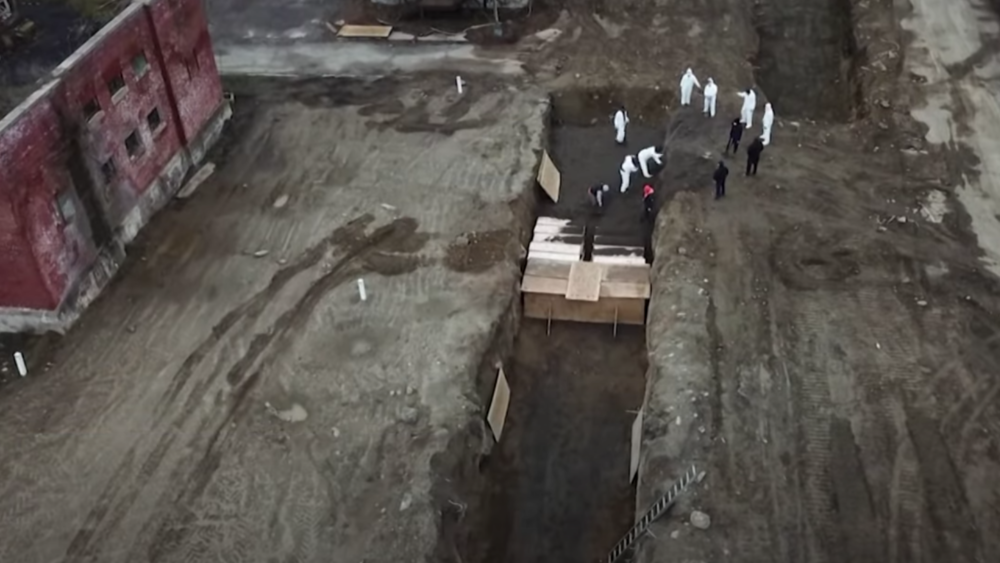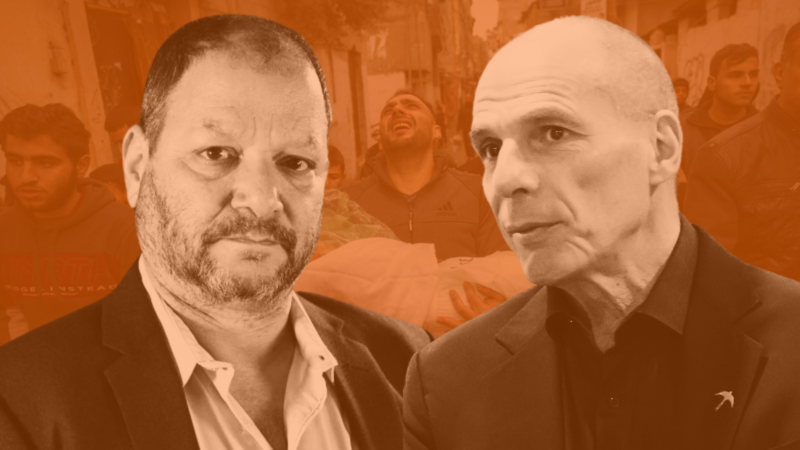Even during a pandemic, capitalists are sacrificing us on the altar of profit.
After long and tedious negotiation, the Eurogroup have finally agreed on their response to the Covid-19 crisis, although for many families it has come far too late. Italy, Greece and Spain will now be allowed access to emergency bailout funds, on the condition that they be placed in a straitjacket of brutal austerity as soon as they experience recovery.
The European elites, having learned nothing from the crises of the last ten years, have yet again demonstrated to the people of the continent that the fiscal balances of Germany and Holland matter more to them than the lives of Italians and Spaniards.
Like all capitalists, the German and Dutch ruling classes are deluded about the origins of their fortune.
Germany’s budget and current account surpluses are a direct result of the indebtedness of Italy, Spain and Greece, and the artificially low value of the euro that is a consequence of that fact. It would seem natural for those looted surpluses to be used in this instance to provide ventilators, protective equipment and economic support to the countries most affected by coronavirus.
Earlier this month, Pedro Sánchez wrote that the virus, this “invisible enemy … is putting the future of the European project to the test”. That test is now complete; and the shallowness of European solidarity exposed. Perhaps the European Union will be the greatest institutional victim of a deliberation that capitalists all over the world are now having; about whether lives (of workers) are more important than the economy (and by ‘the economy’, they mean the stock market: something that has little-or-nothing to do with anyone but themselves) in the context of this pandemic.
Across the Atlantic Ocean, Trump is calling for people to ‘go back to work, much sooner than people thought’. This flies in the face of all scientific and epidemiological opinion, but American capitalists have never let something like empiricism get in the way of good business. As Jeremy Scahill from The Intercept puts it, “it really does seem clear that many corporate vultures don’t seem to care if millions of vulnerable working class or poor people in this country die in the name of returning to their drive for more and more profit.”
ABC’s chief political analyst, Matthew Dowd, wrote that “we must find a balance between protecting citizens’ health and protecting our economy. Decimating our economy in pursuit of fighting the virus doesn’t do our citizens any good in the short or long term.” In a way, Dowd is right. If people aren’t going back to work, they might survive, which would be tragically detrimental to the profits of funeral directors.
Similar sentiments have been expressed in Britain, where Boris Johnson’s government infamously flirted with a ‘herd immunity’ strategy, which would have potentially led to half a million deaths in order to ‘protect the economy’, before they abandoned it (presumably for fear of electoral repercussions). The reasoning behind this was that most of those deaths, it was assumed, would be pensioners.
The mass death of pensioners is not a problem for capitalists because pensioners are typically economically unproductive and represents a burden on the welfare system: indeed, the ageing population represents an existential threat to market capitalism. Jeremy Warner from the Daily Telegraph expressed the probable views of Britain’s leaders when he wrote that ‘from an entirely disinterested economic perspective, the COVID-19 might even prove mildly beneficial in the long term by disproportionately culling elderly dependents’.
Such is the ideological inheritance of capitalism.
In a system where profit is god, our elites are quite happy to sacrifice us on its altar — even, it seems, during a deadly pandemic. And if profit is god, then the angels are surely billionaires, who have seemingly so far spent the lockdown competing as to who can behave in the more amoral and sadistic fashion.
Jeff Bezos, the richest man in the world, is asking the public to donate to pay the wages of his brutalised staff during lockdown. Richard Branson, who has in the past sued Britain’s health service, has asked staff to take eight weeks unpaid leave despite being worth nearly £4 billion. These people drink from fountains of wealth while the workers who built the fountains languish in drought and pestilence.
Defenders of capitalism insist on its rationality and how it is a natural system based on human nature, but the poorest dying in order to sustain profit for the wealthiest doesn’t strike me as rational. There is no market incentive to find a vaccine for COVID-19, just as there is no market incentive to prevent the upcoming extinction of the human race in the form of climate breakdown.
Perhaps the one thing we can all learn from this collective trauma is that the market doesn’t actually possess many answers. And with stagnant wages, flatlining living standards and social misery as permanent features of capitalism long before coronavirus arrived, who would want to die for such a comprehensively failing system?
The sanctity of ‘the economy’ compared to human lives in the minds of our elites raises broader questions about the nature of western civilisation. After all, what is civilisation but a measure of how we treat those in need? When Cuba, an island thousands of miles away from Europe, provides more medical expertise and aid to Italy than Germany; when exploited African migrants are forming cooperatives to provide healthy food to Italians in lockdown; and when the European commission is banning the sale of protective equipment between member states, then what exactly is the point of the European Union? Where is European solidarity, where is European civilisation?
The human cost of capitalism is usually well hidden from western populations.
It only appears sporadically on the news, like when Bangladeshi slave-labouring children are crushed to death in a derelict factory, or when indigenous tribes of the Amazon rainforest are murdered. What happens now that western lives are on the chopping block too? It will be interesting to see how many people will still consent to a system that views them as expendable, especially now that it has been proven beyond all doubt that labour, not capital, is what sustains the world around us.
In the fourteenth century, the Black Death epidemic spread across the world, devastating all that it touched. For those who survived, however, the world changed for the better. Serfdom was destroyed, and peasants were able to demand better wages and conditions from their lords. Our current economic predicament is a similar crisis of labour, and it is well within the power of workers to remake the world around them.
Capitalism, if the World Trade Organization’s predictions are correct, may have been dealt a crippling and perhaps mortal blow by Covid-19. The sacrifice must end. It’s time to take society, not profit, as our god. DiEM25’s 3-point plan to deal with the current crisis, involving 1) a eurobond stimulus, 2) solidarity cash payments to all European citizens and 3) a Green New Deal for Europe may now be the only way to save the European Union.
The featured image is a screenshot of the aerial drone footage taken in the United States of temporary mass graves due to the pandemic and featured on The Guardian.
Do you want to be informed of DiEM25's actions? Sign up here















